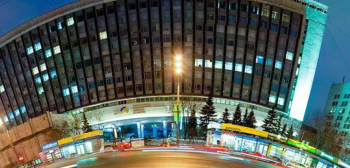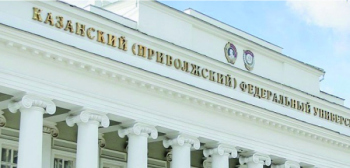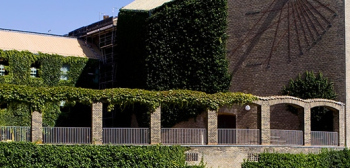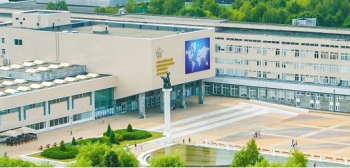茂物农业大学
About
Read more
Read less
The Institut Pertanian Bogor (IPB) or Bogor Agricultural University, which was established in 1963, is the only state university focusing on tropical agriculture and life sciences in a broad sense. IPB is located about 60 kilometers from the capital city of Jakarta.Internationally IPB is well recognized. It has been in a long standing cooperation with foreign universities and related institutions. International partnerships involve student/ academic staff exchange, research collaboration, joint publication, and dual degree programs. Given excellent facilities and qualified human resources, IPB is capable of offering various innovative programs in education and research suited to the national as well as international development. The educational programs include vocational (Diploma), undergraduate (Strata 1), and postgraduate (Master and Doctoral) programs. Further, in an attempt in improving itself for excellence and realizing its motto "searching and serving the best" as well as vision and mission, IPB is now preparing to switch from a teaching-based to a research-based university.Since December 2000, our university has become an autonomous university, and this autonomy is fully implemented at the end of this year, 2005. The status enables us to manage all the university's assets for academic excellence (including the three principal responsibilities of higher education: education, research, and community services/empowerment) and entrepreneurial purposes.With the autonomy status, and our commitment to excellence, we have made two major changes: academic and administrative reorganizations. In the academic reorganization, we have just implemented the major-minor system for undergraduate programs. In this system, prospective students can have much more possibilities to choose their field of studies adjusted to their specific needs and employment opportunity. We have 36 Departments offering major-minor and supporting courses. In the major-minor system, it is possible for the undergraduate students to choose more than four hundred fields of studies. The major-minor system is also being considered for implementation in postgraduate programs. The administration system has also been improved and now is supported by a more effective and efficient system of information technology.IPB currently consists of 9 Faculties, 36 Departments. IPB offers 13 Diploma, 34 S1, 37 S2, and 27 S3 study programs. Study programs offered by IPB cover a wide range of agricultural sciences, from social-economic sciences, to natural and environmental sciences, marine sciences, mathematics, computer science and information services. The study programs provide competence currently required in the development of agricultural industries, marine resources and sustainable development.IPB owns land assets totaling 559.1 ha, including an Experimental Farm totaling 262.1 ha and campus grounds of 297 ha. IPB has also held an Education Forest for 140,300 ha since 1999. In addition IPB maintains 8 student dormitories for up to 5,109 students. There is a total of 58 activity units for students covering sports, professional activities, community services and other activities.
About
The Institut Pertanian Bogor (IPB) or Bogor Agricultural University, which was established in 1963, is the only state university focusing on tropical agriculture and life sciences in a broad sense. IPB is located about 60 kilometers from the capital city of Jakarta.Internationally IPB is well recognized. It has been in a long standing cooperation with foreign universities and related institutions. International partnerships involve student/ academic staff exchange, research collaboration, joint publication, and dual degree programs. Given excellent facilities and qualified human resources, IPB is capable of offering various innovative programs in education and research suited to the national as well as international development. The educational programs include vocational (Diploma), undergraduate (Strata 1), and postgraduate (Master and Doctoral) programs. Further, in an attempt in improving itself for excellence and realizing its motto "searching and serving the best" as well as vision and mission, IPB is now preparing to switch from a teaching-based to a research-based university.Since December 2000, our university has become an autonomous university, and this autonomy is fully implemented at the end of this year, 2005. The status enables us to manage all the university's assets for academic excellence (including the three principal responsibilities of higher education: education, research, and community services/empowerment) and entrepreneurial purposes.With the autonomy status, and our commitment to excellence, we have made two major changes: academic and administrative reorganizations. In the academic reorganization, we have just implemented the major-minor system for undergraduate programs. In this system, prospective students can have much more possibilities to choose their field of studies adjusted to their specific needs and employment opportunity. We have 36 Departments offering major-minor and supporting courses. In the major-minor system, it is possible for the undergraduate students to choose more than four hundred fields of studies. The major-minor system is also being considered for implementation in postgraduate programs. The administration system has also been improved and now is supported by a more effective and efficient system of information technology.IPB currently consists of 9 Faculties, 36 Departments. IPB offers 13 Diploma, 34 S1, 37 S2, and 27 S3 study programs. Study programs offered by IPB cover a wide range of agricultural sciences, from social-economic sciences, to natural and environmental sciences, marine sciences, mathematics, computer science and information services. The study programs provide competence currently required in the development of agricultural industries, marine resources and sustainable development.IPB owns land assets totaling 559.1 ha, including an Experimental Farm totaling 262.1 ha and campus grounds of 297 ha. IPB has also held an Education Forest for 140,300 ha since 1999. In addition IPB maintains 8 student dormitories for up to 5,109 students. There is a total of 58 activity units for students covering sports, professional activities, community services and other activities.
University highlights
- 2012#601+
- 2014# 701+
- 2015# 701+
- 2016#701+
- 2017#701+
- 2018#751-800
- 2019#701-750
- 2020#601-650
- 2021#531-540
- 2022#511-520
- 2023#=449
- 2024#=489
- 2025#=426
- 2026#399
QS Stars is a rating system that helps you select the right university based on your
interests. It provides a detailed look at an institution, identifying which universities rate highest in
the
specific topics that matter to you, like facilities, graduate employability, social responsibility,
inclusiveness, and more.
Campus locations
Institut Pertanian Bogor,
Kampus IPB Darmaga , Bogor , West Java , Indonesia , 16680
Similar Universities
罗切斯特大学西门商学院
245 Gleason Hall, Rochester
Mitch Daniels School of Business 米切尔丹尼尔斯商学院
Rawls Hall, Suite 2021, West Lafayette
Related content
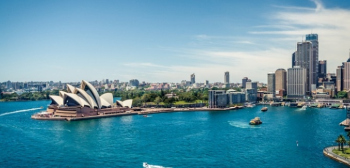
Studying Abroad in Australia…
Cat
Sargent
更新日期
1.5k
21

来留学后你会爱上东京的13个理由
Stephanie
Lukins
更新日期
1.4k
26

Everything You Need to Know…
Craig
OCallaghan
更新日期
1.8k
18
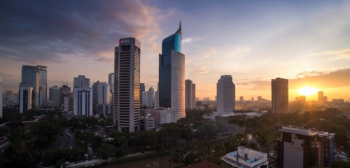
雅加达
Chloe
Lane
更新日期
808
0

International Scholarships f…
Laura
Tucker
更新日期
2.2k
21
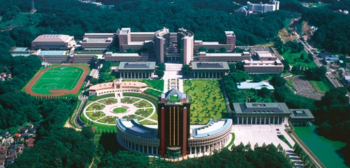
Top Universities in Asia for…
Laura
Tucker
更新日期
1.1k
0
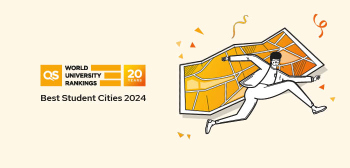
2024年QS最佳留学城市排名:今年有哪些新晋城市?
alexandru
Croitoru
更新日期
3.2k
0
Test preparations
Bogor Agricultural University
CN




